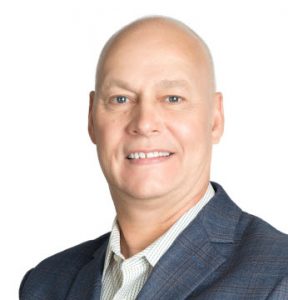A Deeper Definition of Risk

As a breakthrough coach, I talk a lot about “risks.” I help my clients make it safer to take the steps they need to take to do what they really love by helping them process the underlying risks that are holding them back. What they often tell me in our work together is that they’re surprised to discover deeper underlying risks.
The Common Perception of Risk Management
Traditionally, people who aspire to do what they love think of risk only in very concrete terms. They may ask themselves, “How will I handle the risk of paying for my own health insurance if I leave my 9 to 5 job?” They may also consider things like, “I need to have a $10,000 emergency fund ready before I make a career jump.” Other thoughts may include, “The timing will not be right for this until the kids are both in school.” These are all sound, practical risk management concerns that anyone should carefully consider before making a big change.
In traditional business risk management, this practical process continues. Leaders identify internal and external risks to operations, accounting, marketing, and all other pertinent areas of the business. For example, a restaurant would consider the possible risks of losing power; what would be the impacts to food spoilage and loss of revenues, and what options are available to mitigate those risks? Maybe a backup generator could be installed, or the company could establish a policy of keeping only essential perishable stock on hand. Business risk management is a creative process where leaders consider, “What could go wrong?” and then develop plans to lessen the impact of negative circumstances considering the likelihood and severity of the risk impacts. It’s an important part of responsibly running any company from a large business to a small practice.
Risk in Breakthrough Coaching
In breakthrough coaching, though, risk management is something that runs through our veins. It’s part of the “operating system” that’s programmed into our minds and hearts. We’re all practicing risk management on an individual level, in a way that includes practicalities as well as deep emotional needs. In our subconscious, we’re constantly processing risks: “What could go wrong here?” Our intuition guides our actions toward what our mind predicts will keep us safe.
However, we rarely take the time to deliberately unpack these risks. This is partially because it would be inefficient to do so. Our minds are fine-tuned to run in the background while we stay focused on the task at hand. This is for our own safety!
Consider driving down the highway when you get “the feeling” that the car in the righthand lane is about to cut you off. You could stop and observe all the cues that are helping you make this prediction. For instance, you could look into the other car to see that the driver is texting on his phone. You could also reflect on times in the past when someone cut into your lane. Chances are good you’ll end up in an accident before you finish all that thoughtful contemplation. Realistically, it’s better to just slow down or move out of his way as your intuition dictates. If we stop to consciously consider every decision-making moment, we will become frozen in harm’s way.
What is at Risk?
Car crashes notwithstanding, there are times when we must in fact slow down and pay attention to our internal risk processing if we want to evolve. Consider the following scenarios:
- A boss asks you to take on a new project. You’re overwhelmed with tasks right now, but you’re tempted to say “yes” anyway. What is at risk to say “no?”
- You meet someone who you perceive would be a great candidate for a pilot program that you’re creating. You have a friendly conversation, but feel scared to bring up the business opportunity. What is at risk to talk about it?
- You’re a few weeks into dating someone new. You’d really like to connect with this person on a deeper level. You go to dinner together, but find it difficult to share more about yourself beyond surface-level details. What is at risk to be vulnerable?
- You’ve been training for your first half-marathon for months. One weekend, it feels like all your motivation flew out the window. You eat a bunch of sugary snacks while bingeing on Netflix and give up on your training. What was at risk to keep going?
- A client is being irrational, again. You’ve explained something to them several times, yet they still keep asking for a result that is unreasonable to you. Aggravated, you respond with the truth, “I’ve already explained this 5 times to you,” and proceed to fire the client. Later you find out the client has been telling others that you never really understood what they were requesting. What was at risk to explore the client’s request in a deeper way?
Risks Protect us – But Also Hold us Back
When we perceive risks, a part of us is attempting to protect us from danger. Our past experiences are shaping the way we show up, personally and/or professionally, so that we don’t get hurt. We can be grateful for the way our minds have evolved to keep us safe. However, it’s important to be mindful and notice when risk management creates stale patterns in our lives. When we always play it safe, we’re held back from becoming our most vibrant and authentic selves.
In order to process those risks in a way that creates transformation, I believe that you’ll need high quality support. Unpacking risks is not something we are taught to do in our culture, and doing so successfully requires skilled facilitation. In breakthrough coaching, we dig deep within ourselves to process these risks, updating the “operating system,” so to speak. As we do, the power of the risks weakens and we become empowered with new ways of interacting with ourselves and the world.
Complimentary Breakthrough Consultation
I’d love to visit with you to discuss how breakthrough coaching can help you process risks that are holding you back from doing what you really love. I offer a complimentary online Engaging Breakthrough consultation via Zoom.
In this 30-60 minute online breakthrough coaching session, I will help you get crystal clear on where you are right now and where you want to be. I’ll give you my best professional recommendations to help you take your first steps toward your success breakthrough.
Click here to book your session now.
 |
Written by Craig Tennant Founder, Engaging Breakthroughs Transformation Architect and Breakthrough Coach At Engaging Breakthroughs, Craig Tennant delivers |
